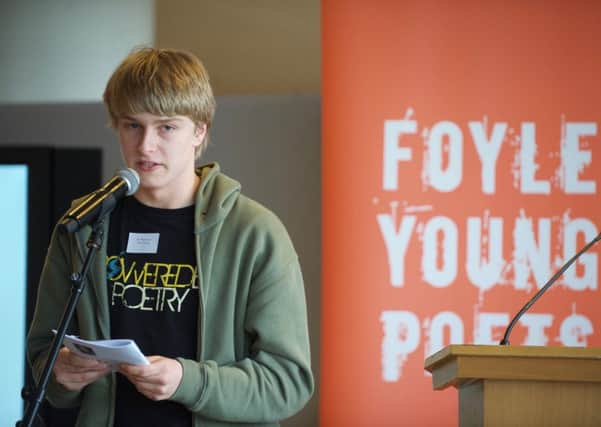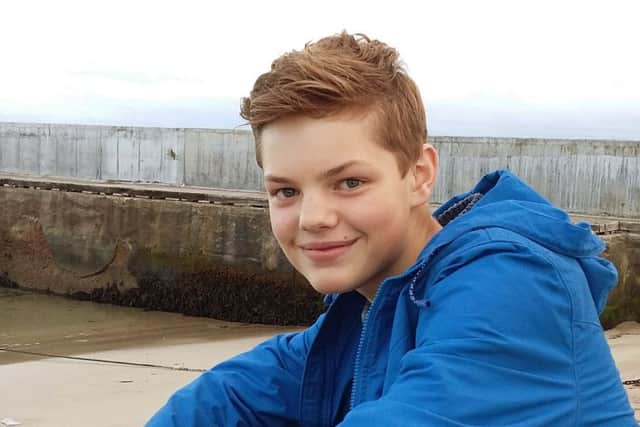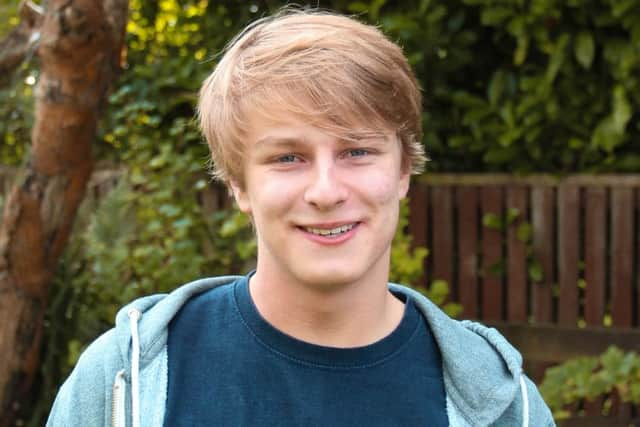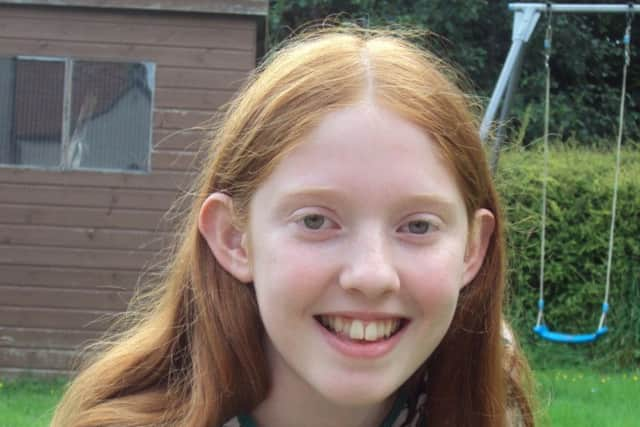Three young Scots poets win prestigious literary contest


The competition, organised by the Poetry Society, is aimed at 11-17 year olds and received 12,288 poems from 5,486 poets, spanning 69 countries. These entries were whittled down to a winning group of just 15.
Three of the winners, two of whom attended an awards ceremony at Festival Hall in London earlier this afternoon, are teenagers are from Scotland.
Advertisement
Hide AdWinner Ian MacCartney, aged 16, from Linlithgow, said he was inspired for his entry ‘The Snails Move Out’ by a walk home from school.


“I was walking back home and it was raining,” he said. “There was a huge number of snails walking on the wet pavement.
“I thought it was very powerful. Watching these snails crossing over this dangerous terrain”
The young poet has already picked up a number of accolades, including prizes from the Pushkin Prizes and RSPB’s Wildverse contest.
When asked about what he would say to influence others of a similar age to get into poetry, Ian said: “Broaden your horizons. It isn’t just what’s in the classroom. There’s performance poetry and rapping out there.”


Magnus Dixon, from the western coastal village of Cruden Bay, is collecting the award on his 15th birthday for his poem, ‘Compass-Point Lullabies for Emily’:
Advertisement
Hide Ad“My sailing instructor is one of the people who encouraged me to write poetry,” explained Magnus. “I wrote this for the birth of their daughter Emily.”
“I wrote it about the landscapes that are important to her parents and to introduce her to those landscapes.”
Advertisement
Hide AdDespite his young age, this is the third consecutive year that Magnus has been among the top 15 Foyle Young Poets.


“I’ve always had an interest in poetry as a means of expression and encapsulating your emotions”
“I’ve met so many people by entering these competitions, but writing personally or just your family is also okay. It’s personal and special to you”
Sophia Tait, 14, from Livingston, is the third young Scot named amongst the winners for her poem, ‘Two ways of painting the picture’. She was unable to attend the ceremony, but had previously said: “When I wrote my poem, I was sitting opposite a vase of striking tulips. I’d recently been reading a book about drawing in ultrarealism, but was somewhat daunted by the complex instructions!
“It got me wondering if I could tackle my subject with words, rather than coloured pencils.”
Many former Foyle Young Poet winners have gone to have successful careers in the the world of creative writing. The winning entries are published in an anthology, and the writers benefit from a range of professional development opportunities offered by The Poetry Society.
Advertisement
Hide AdJudith Palmer, Director of The Poetry Society, believes that encouraging young people to write creatively is a hugely important task for the worldwide organisation:
“Funnily enough, I was involved eighteen years ago at the inaugural event and it was a much smaller event”
Advertisement
Hide Ad“The Poetry Society has been going for over 100 years. I was recently looking through the archives and we’ve been publishing young poets throughout that time.
“For young people, writing creatively is not an artificial occupation.
“Writing poetry hones your observations, emotions and intelligence. It increases your self identity and helps with resolving difficult questions.”
When asked about what stood out about these winners, Palmer commented on their originality. “There’s a wide range of subjects,” she said. “It’s not going copying or mimicking. There’s subjects as wide as neuroscience and MRI scans. I’m always bowled over their subject matter.”